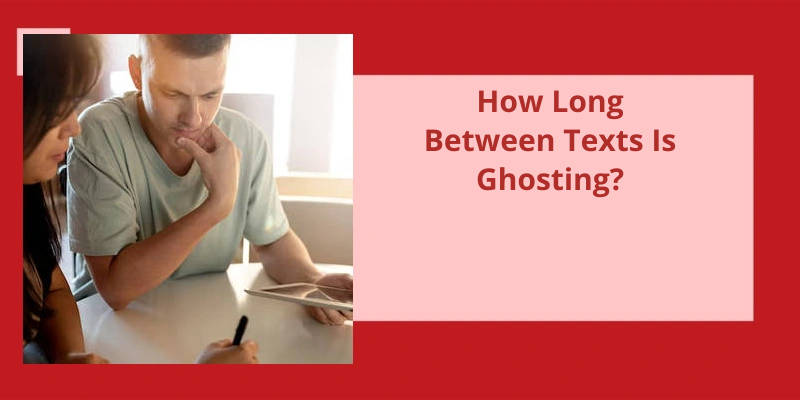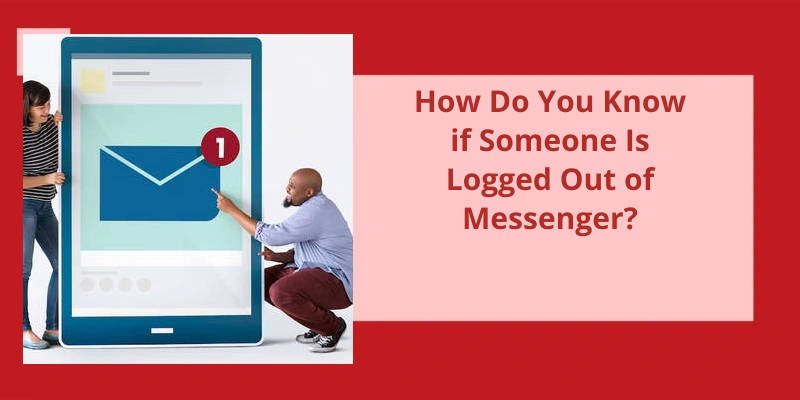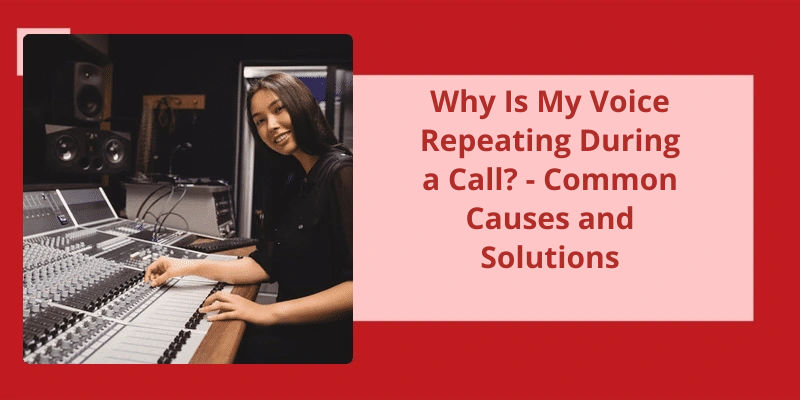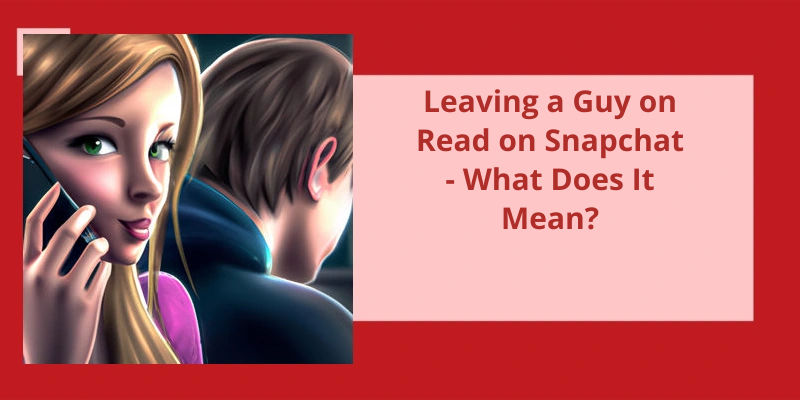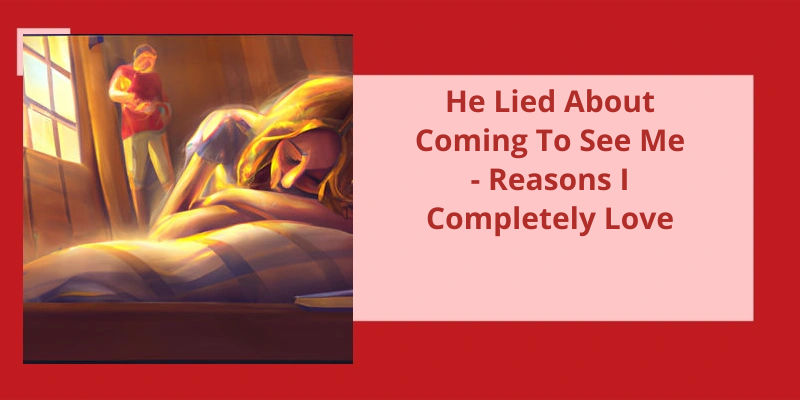Ghosting is a modern dating phenomenon that leaves individuals feeling confused, hurt, and questioning their worth. It’s the act of abruptly cutting off all communication without any explanation or warning. Although every relationship is unique, it’s generally accepted that if someone goes three days or longer without responding, they’ve crossed into ghosting territory. Of course, there will always be instances where emergencies or unforeseen circumstances arise, leading to a delay in response. However, allowing a significant amount of time to pass without any word can be classified as ghosting, leaving the recipient feeling abandoned and disregarded.
How Many Times Should You Text Someone Before You Assume They Ghosted You?
When it comes to deciphering whether or not someone has ghosted you, the number of times you texted may not be the most reliable indicator. While some people may assume that being ignored after a single text is a clear sign of being ghosted, experts suggest that focusing on the length of time after a text can be more accurate in determining if youve been ghosted.
According to relationship coach, Julie Strang, if you don’t hear back from someone within three days, it may be time to move on. This three-day benchmark allows for a reasonable amount of time for the other person to respond. Of course, every situation is different, and some people may have legitimate reasons for not responding promptly. However, if days turn into weeks and you still havent received a response, it’s safe to say that you may have been ghosted.
It’s important to remember that ghosting is a reflection of the other persons actions, not your worth. It can be hurtful and confusing, but it’s essential to maintain your self-respect and not dwell on someone who isnt making an effort to communicate. If someone consistently ignores your texts and fails to engage in conversation, it may be time to reevaluate the potential for a meaningful connection with that person.
While it’s understandable to feel frustrated or disappointed when someone you were interested in suddenly stops responding, it’s crucial to prioritize your own emotional well-being. Dwelling on the unanswered texts can have a negative impact on your mental health and may prevent you from moving on and finding someone who’s truly interested in getting to know you. Remember that you deserve someone who values your time and effort and is willing to reciprocate communication.
Ultimately, the number of texts exchanged isn’t as significant as the time that’s passed without a response. If several days have gone by with no reply, it may be time to accept that youve been ghosted and redirect your energy towards finding someone who appreciates and respects your communication efforts. While it may be disheartening to experience ghosting, it’s important to remain hopeful and remain open to new connections that have the potential to be more fulfilling in the long run.
How to Cope With Being Ghosted
- Accept that being ghosted may not be about you
- Give yourself time and space to heal
- Avoid dwelling on unanswered questions
- Focus on self-care and self-improvement
- Connect with supportive friends or family
- Engage in activities that bring you joy
- Keep an open mind for new connections
- Don’t rush into new relationships
- Learn from the experience and grow stronger
- Remember that you deserve respect and honesty
Many people have differing opinions on how long it takes for a communication to be officially considered as ghosting. While some argue that a waiting period of three days is necessary, others suggest a much shorter timeframe. In fact, an increasing number of individuals claim that if you haven’t received any response within 24 hours, it’s safe to conclude that you’ve been ghosted.
How Long Should I Wait Ghosted?
When it comes to the question of how long one should wait after being ghosted, opinions tend to vary. Traditionally, a common belief is that if someone hasnt responded to your message in three days, it’s officially considered ghosting. However, as dating norms continue to evolve in the digital age, an increasing number of individuals argue that waiting even 24 hours might be considered an indicator of being ghosted.
The concept of ghosting refers to the act of abruptly cutting off communication with someone without any explanation or warning. It often leaves the recipient feeling confused, hurt, and left wondering what went wrong. As technology enables quicker, more immediate communication, many believe that a lack of response within a day is a clear sign of disinterest or a sudden change in circumstances.
The perception of ghosting timelines varies because people have different expectations and comfort levels when it comes to communication. Some individuals may prefer a few days of space to gather their thoughts and reply, while others may interpret any delay as a clear sign of disinterest or fading connection.
It’s important to remember that everyones communication style is unique, and there may be valid reasons for delays in response. Various factors such as work commitments, personal circumstances, or simple forgetfulness can contribute to a delayed response without any malicious intent. Therefore, it’s essential to consider the context of the relationship, the individuals communication patterns, and past experiences before implying ghosting after just a few hours or a day.
Ultimately, navigating the world of modern dating and communication can be tricky, but it’s important to approach it with empathy and an open mind. While it’s natural to have expectations and feel hurt when communication abruptly stops, it’s also crucial to acknowledge that people have different communication styles and may lead busy lives. Open and honest communication about expectations can help avoid misunderstandings and alleviate the pain of being ghosted.
The Impact of Ghosting on Mental Health and Self-Esteem
Ghosting can have a significant impact on mental health and self-esteem. When someone suddenly stops responding to our texts or messages, it can leave us feeling confused, rejected, and ignored. The lack of closure and the uncertainty about what went wrong can lead to anxiety, self-doubt, and decreased self-esteem.
The silence and absence of communication can leave us questioning our worth and value, leading to feelings of inadequacy and self-blame. Ghosting can also trigger feelings of abandonment, as if we weren’t important enough to merit a response or explanation.
Repeated experiences of ghosting can further exacerbate these negative emotions and have long-term effects on mental well-being. It can create a sense of distrust in future relationships and make it harder to open up and trust others.
It’s important to remember that ghosting is a reflection of the other person’s behavior and choices, rather than a reflection of our worth. It’s crucial to prioritize self-care, seek support from loved ones, and engage in activities that promote positive self-esteem to recover from the impact of ghosting on mental health.
Should I Text Again After Being Ghosted?
It’s best to accept that they aren’t worth your time and energy. Ghosting is a clear indication of their lack of respect and communication skills. Instead of chasing after someone who’s already shown their true colors, it’s more empowering to focus on moving forward and finding someone who values and appreciates you.
Sending another text might give you a temporary sense of closure, but it’s unlikely to change their behavior or make them suddenly interested in you. In fact, it may even come across as desperate or needy, which can be a major turn-off. Remember, you deserve someone who’s willing to put in the effort and communicate openly.
Closure is something that you can find within yourself. While it can be difficult to let go of unanswered questions or unresolved feelings, it’s important to remember that closure ultimately comes from understanding and accepting that the other persons actions have nothing to do with your worth or value. It’s about recognizing that ghosting says more about them than it does about you.
Instead of dwelling on a ghosting situation, focus on self-care and maintaining your own happiness. Surround yourself with supportive friends and family, engage in activities that bring you joy, and keep an open mind to new opportunities and potential connections. By directing your energy towards your own growth and well-being, you’re more likely to attract someone who respects and values you.
The decision to text again after being ghosted is a personal one. However, considering the lack of respect and communication that ghosting demonstrates, it’s generally advised to move on without reaching out. Focus on finding someone who appreciates you and is willing to communicate openly, as you deserve someone who values you and your feelings.
Coping Strategies for Dealing With Being Ghosted
Being ghosted, or suddenly cut off by someone without explanation or warning, can be a painful and confusing experience. Coping with being ghosted can be challenging, but there are strategies that may help you navigate through this difficult situation.
Firstly, it’s essential to give yourself time to process your emotions. Allow yourself to feel the hurt, disappointment, and confusion that may arise from being ghosted. It’s normal to experience a range of emotions, so be patient with yourself and give yourself space to heal.
While it’s natural to want closure or an explanation, it’s important to accept that you may not always get it. Some individuals choose to cut off contact without any clear reason, and obsessing over the why can be detrimental to your well-being. Instead, focus on self-care and moving forward.
Engaging in activities that bring you joy and help distract your mind can be helpful during this time. Surround yourself with friends and loved ones who can provide support and understanding.
Source: Should I even text her again after being ghosted?
Conclusion
Ghosting in the realm of texting is a perplexing phenomenon that’s become increasingly prevalent in modern dating culture. It leaves individuals in a state of uncertainty, questioning their worth and connection with the other party involved. The answer, for all intents and purposes, seems to be around three days. This timeframe allows for the consideration of various factors, such as unexpected emergencies or unforeseen circumstances that may prevent an immediate response. However, granting more than three days for a reply, without any explanation or acknowledgment, is enough to classify it as a ghosting situation. It’s disheartening to experience such a lack of communication and closure, leaving many to wonder what went wrong or if they did something to trigger this sudden silence.

